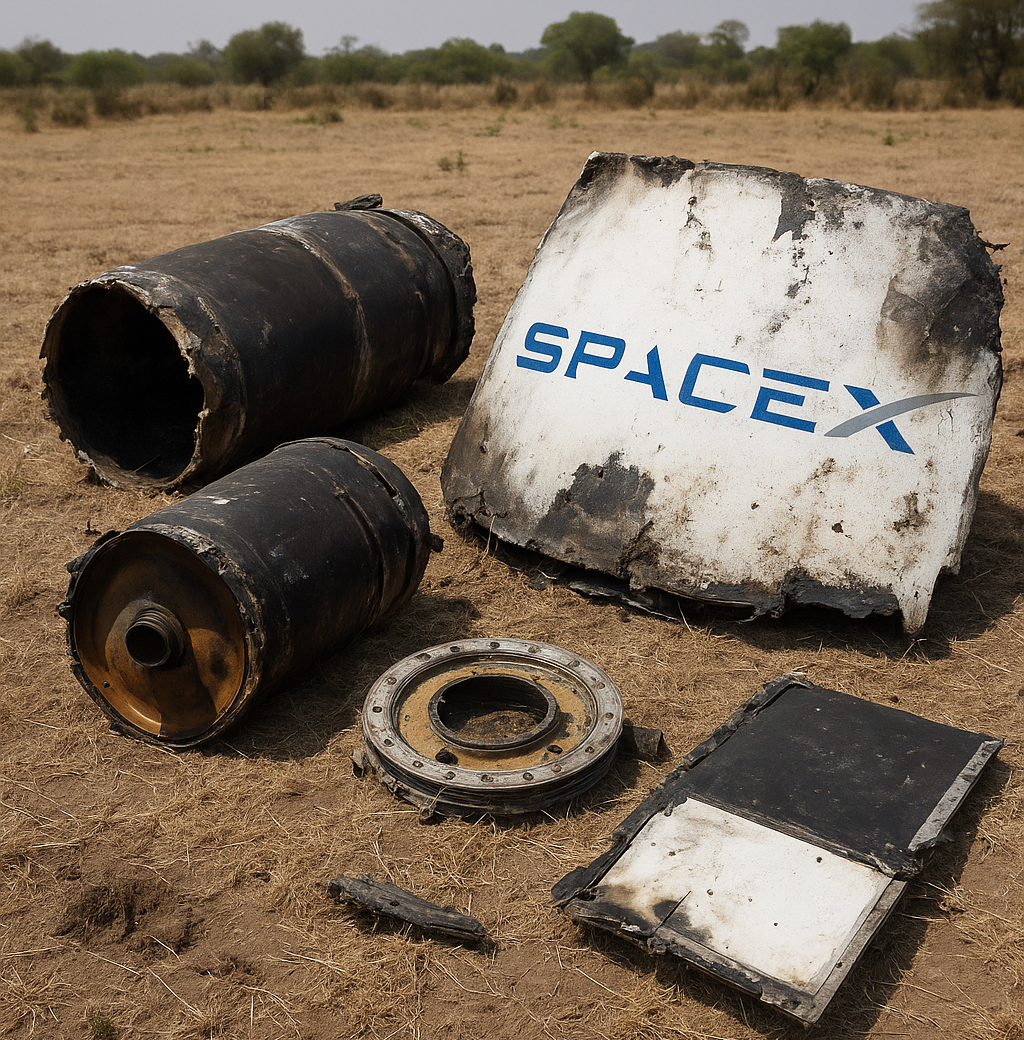Debris from Starship test explosions fell into northern Mexico. Mexican authorities—including President Sheinbaum—are probing possible contamination and environmental harm, and considering legal action.
On June 18, during a static‑fire test at SpaceX’s Starbase facility in South Texas, a Starship rocket exploded, sending debris—metal, plastic, rubber, and fuel tanks—flying across the border into Tamaulipas, Mexico.
President Claudia Sheinbaum, speaking on June 25, confirmed Mexican authorities had launched an investigation into contamination and potential breaches of international law. “There is indeed contamination,” she said, and confirmed that the government is outlining legal action against SpaceX if violations are confirmed.
Mexican environmental prosecutors have collected a range of materials—plastic fragments, metal shards, and fuel components—from over 40 km of shoreline, sparking concerns from conservationists about dangers to wildlife.
Texas Starbase Begins Gating Public Roads
Meanwhile, just miles from the test site, SpaceX’s Starbase city government has begun erecting gates on several public roads in the Boca Chica/Starbase area. The closures (on Esperon, LBJ, Memes, and Saint Jude Streets) were approved on June 23 by a three‑member commission, all connected to SpaceX, to restrict traffic to residents, officials, first responders, and invited guests.Supporters cite safety concerns from increased foot traffic during Starship operations and aim to maintain a controlled environment.
Kent Myers, Starbase city manager, said the measures are to “regulate the constant flow of visitors”.
Implications & Next Steps
These twin developments highlight widening friction as SpaceX’s Starship program advances from its Texas hub. Mexico’s move may spark international legal action, diplomatic negotiations, or environmental remediation demands. Domestically, if Texas courts rule against the Starbase closures, SpaceX could be forced to reopen roads and face civil litigation.
Both issues underscore the tension between rapid space-industry ambition and public‑rights enforcement—from safeguarding wildlife abroad to upholding citizens’ access at home. With ongoing investigations in Mexico and escalating legal scrutiny in Texas, SpaceX is now navigating its bold space agenda under rising legal and environmental pressure.








